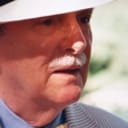Stay in the Loop
BSR publishes on a weekly schedule, with an email newsletter every Wednesday and Thursday morning. There’s no paywall, and subscribing is always free.
The trouble with the Orchestra: It's the board, not the musicians
Orchestra's biggest problem: Its board

Contrary to Dan Rottenberg, I can't think of anything less pertinent to the Philadelphia Orchestra's future than whether its instrumentalists emote as they play.
I began attending Orchestra concerts much later than Dan did— that is, when my wife and I moved to Philadelphia in 1977. At that point Eugene Ormandy was already an ancient gentleman. Our impression is that he was conducting in his sleep, and the Orchestra was playing in its sleep. At that point, the only conducting of international stature in this city was that of Max Rudolf.
By that time I had heard, over nearly 30 years, frequent fresh and illuminating interpretations by Koussevitsky, Charles Munch and, occasionally, Pierre Monteux (who in his last performances in Boston could barely stand, but still made every piece he performed new). We listened regularly to Muti and Sawallisch. Both were highly competent and usually led unexceptionable performances. Both showed they were aware Philadelphia is a soft audience; any piece at end of a program that closes with a crescendo will bring wild applause. They deserve credit for restoring the Orchestra's burnished tone— the one thing at which it regularly excels.
Muti's weak spots
Muti, it was clear, was one of the many celebrity conductors whose standing among unimaginative patrons depended on holding down three prestigious jobs at once. For that reason, he normally lacked sufficient rehearsal time (because he didn't demand it of himself) to attempt anything more ambitious than a technically perfect reading.
That became doubly clear when Muti conducted concert performances of operas. The ones we heard showed he could unveil something unexpected and moving in the music. Whether this was because his true passion lies in opera, or because he insisted on more rehearsal time, I don't know.
Anyhow, after several years of competent, predictable and boring performances under Sawallisch, we gave up and let our tickets go. We now listen to the Chamber Orchestra— which is near the top in its class—and plenty of chamber music. None of the groups we choose is routine.
Treating musicians like serfs
Now, why is the Philadelphia Orchestra stuck in its rut? Really and truly, I'm not interested enough to probe that mystery. But one spoiler has been extremely obvious over 30 years: a board that cares more about its sovereignty than about what will make the Orchestra the best in its field, and that has treated the musicians like serfs in contract negotiations. It has consistently repelled young, truly innovative conductors who care more about depth of interpretation than anything else and who will accept a single job conducting an orchestra that can do anything they insist on.
When will Philadelphia get a board that puts quality first, by its decisions and actions, as opposed to its talk? Only then can we hope that the Orchestra will, over the time it takes to restore its excellence (and I don't mean its golden tone), become exciting again. That is the only thing that can take it to the top.
Nathan Sivin is a professor of Chinese culture and of the history of science at Penn.
To read a response, click here.
I began attending Orchestra concerts much later than Dan did— that is, when my wife and I moved to Philadelphia in 1977. At that point Eugene Ormandy was already an ancient gentleman. Our impression is that he was conducting in his sleep, and the Orchestra was playing in its sleep. At that point, the only conducting of international stature in this city was that of Max Rudolf.
By that time I had heard, over nearly 30 years, frequent fresh and illuminating interpretations by Koussevitsky, Charles Munch and, occasionally, Pierre Monteux (who in his last performances in Boston could barely stand, but still made every piece he performed new). We listened regularly to Muti and Sawallisch. Both were highly competent and usually led unexceptionable performances. Both showed they were aware Philadelphia is a soft audience; any piece at end of a program that closes with a crescendo will bring wild applause. They deserve credit for restoring the Orchestra's burnished tone— the one thing at which it regularly excels.
Muti's weak spots
Muti, it was clear, was one of the many celebrity conductors whose standing among unimaginative patrons depended on holding down three prestigious jobs at once. For that reason, he normally lacked sufficient rehearsal time (because he didn't demand it of himself) to attempt anything more ambitious than a technically perfect reading.
That became doubly clear when Muti conducted concert performances of operas. The ones we heard showed he could unveil something unexpected and moving in the music. Whether this was because his true passion lies in opera, or because he insisted on more rehearsal time, I don't know.
Anyhow, after several years of competent, predictable and boring performances under Sawallisch, we gave up and let our tickets go. We now listen to the Chamber Orchestra— which is near the top in its class—and plenty of chamber music. None of the groups we choose is routine.
Treating musicians like serfs
Now, why is the Philadelphia Orchestra stuck in its rut? Really and truly, I'm not interested enough to probe that mystery. But one spoiler has been extremely obvious over 30 years: a board that cares more about its sovereignty than about what will make the Orchestra the best in its field, and that has treated the musicians like serfs in contract negotiations. It has consistently repelled young, truly innovative conductors who care more about depth of interpretation than anything else and who will accept a single job conducting an orchestra that can do anything they insist on.
When will Philadelphia get a board that puts quality first, by its decisions and actions, as opposed to its talk? Only then can we hope that the Orchestra will, over the time it takes to restore its excellence (and I don't mean its golden tone), become exciting again. That is the only thing that can take it to the top.
Nathan Sivin is a professor of Chinese culture and of the history of science at Penn.
To read a response, click here.
Sign up for our newsletter
All of the week's new articles, all in one place. Sign up for the free weekly BSR newsletters, and don't miss a conversation.

 Nathan Sivin
Nathan Sivin